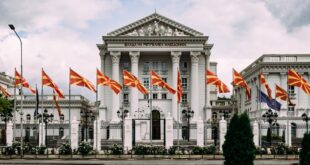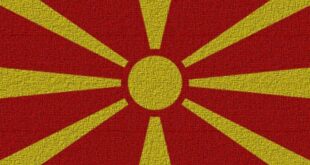EU foreign ministers’ conclusion Tuesday is not the same as last year’s NATO conclusion in Bucharest regarding the country’s entry into the Alliance, the EU’s top ambassador to Skopje told media.
He said the decision by foreign ministers to revisit the question of whether to give Macedonia a start date for EU accession to the first half of next year is not intended to block Skopje’s EU membership progress, but to extend an opportunity for the continuation of name talks with Greece.
“I completely disagree with the media that the Brussels decision resembled the Bucharest scenario, especially if we take a look at the meeting’s report,” Fouere was cited as saying by the MIA news agency.
“If the report of the Council of EU meetings is read carefully – and I urge all political factors to carefully read them – it is obvious that it includes a certain timeframe. It is certainly progress because it encourages both sides to solve the issue, not to delay it,” the EU ambassador stated.
His statement comes after the Prime Minister Nikola Gruevski repeated several times that what happened in Brussels is a milder version of last year’s Greek blockade in Bucharest.
Last year Greece blocked NATO’s invitation for Macedonia’s membership in the Alliance pending a solution to the country’s long-standing name dispute. NATO then said Skopje could enter the block once it resolves the row.
In this autumn’s progress report the European Commission said Skopje is ready to start talks, and recommended member states extend a start date which due to Greece’s opposition was not extended at this weeks’s EU council in Brussels.
Fouere urged both Gruevski and his Greek counterpart, George Papandreou to intensify communication to reach a compromise. The two have met on two occasions during the past month period, sparking hopes for a solution to the row.
 Eurasia Press & News
Eurasia Press & News



